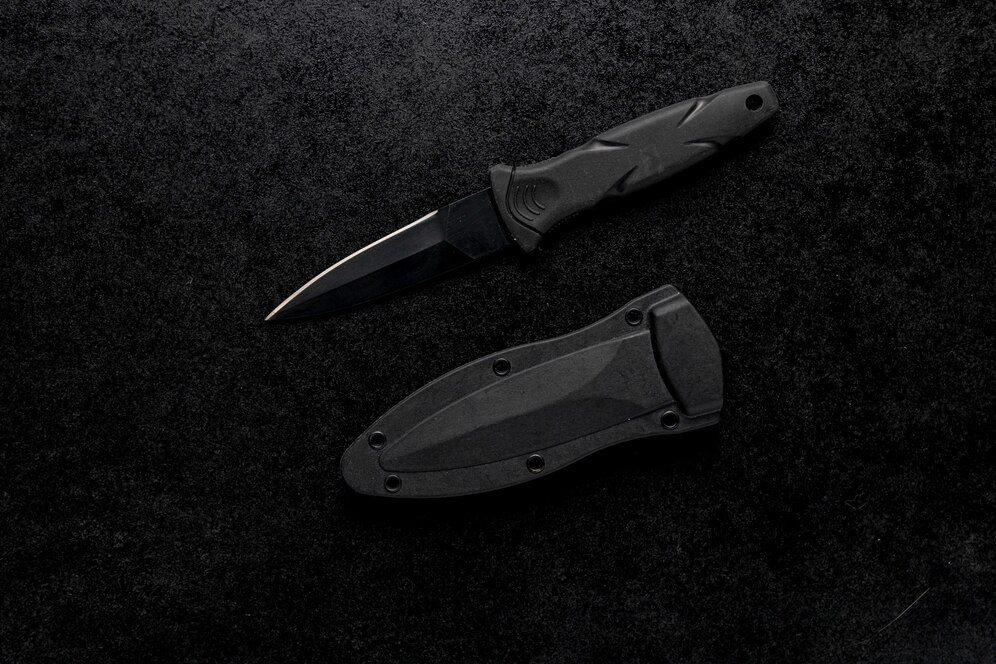
A Comprehensive Guide to Kansas Knife Laws
Understanding the laws of Kansas regarding knives will be useful not only to its residents but also to any visitor of the state, to be on the safe side and avoid unnecessary legal tussles. This article aims to consider the knife laws of Kansas state in terms of legal knife types, restrictions related to carrying knives, and other issues that may arise.
What Knives Are Legal in Kansas?
Kansas comes out as one of the states with relatively permissive knife laws. Therefore, below is a categorization of the different kinds of knives an individual can own under legal terms in Kansas:
Pocket Knives
Pocket knives are multipurpose tools usually carried by people for various uses. Some states, like Kansas, have pocket knife laws that are kind of friendly, enabling easy possession and carry with not much regulation. Here are the major details in respect of pocket knives and Kansas State:
- Traditional folding pocket knives that have been around for centuries are not restricted by legal terms.
- These would usually have the folding blade fitted into the handle, which indeed makes them highly compact and portable in the pocket.
- Although the ownership is not limited, citizens should be mindfully aware of the local laws on where they can carry pocket knives.
- Pocket knives offer a multi-purpose tool to serve people in all tasks that require cutting, slicing, and even opening packaging.
Fixed-Blade Knives
Fixed-blade knives offer durability and versatility for a wide range of applications, including hunting, camping, and survival. In Kansas, possession of fixed-blade knives is legal, providing residents with access to these essential tools. Here are some important details about fixed-blade knives in Kansas:
- Fixed-blade knives have a blade that is permanently attached to the handle and does not fold.
- These knives are commonly used by outdoor enthusiasts and professionals for tasks such as field dressing game, preparing food, and bushcraft.
- While ownership is permitted, individuals should be aware of any restrictions on carrying fixed-blade knives in certain areas or situations.
- Proper maintenance and safe handling are essential when using fixed-blade knives to prevent accidents and ensure longevity.
Switchblades and Automatic Knives
Switchblades and automatic knives are favored by some for their rapid deployment and ease of use. In Kansas, these knives are legal for possession, offering enthusiasts and professionals access to these specialized tools. Here are some key points about switchblades and automatic knives in Kansas:
- Switchblades feature a blade that deploys automatically with the press of a button or switch, making them convenient for certain tasks.
- Kansas law allows individuals to own and carry switchblades and other automatic knives without specific restrictions.
- Despite their legality, users should exercise caution and familiarity with applicable laws when carrying or using switchblades in public spaces.
- Proper training and responsible use are essential to prevent accidents and ensure compliance with knife laws.
Balisong Knives (Butterfly Knives)
Balisong knives, also known as butterfly knives, are distinctive folding knives characterized by their rotating handles. In Kansas, ownership of balisong knives is legal, allowing enthusiasts to practice flipping techniques and utilize them for practical purposes. Here are some important details about balisong knives in Kansas:
- Balisong knives feature a unique design with two handles that rotate around the blade, making them popular among collectors and martial arts practitioners.
- While ownership is permitted, individuals should familiarize themselves with any regulations regarding the carrying and use of balisong knives in specific locations.
- Responsible handling and storage are crucial when owning balisong knives to prevent accidents and ensure safe usage.
- Proper maintenance, including lubrication and tightening of screws, can help prolong the lifespan of balisong knives and maintain their functionality.
Disguised Knives
Disguised knives are designed to conceal the blade within everyday objects or accessories, offering a level of discretion and utility. In Kansas, ownership of disguised knives is legal, allowing individuals to possess these covert tools for various purposes. Here are some key points about disguised knives in Kansas:
- Disguised knives come in various forms, including cane knives, belt buckle knives, and other concealed designs.
- While ownership is legal, individuals should exercise caution and discretion when carrying disguised knives in public spaces.
- It’s important to be aware of any regulations or restrictions regarding the use of disguised knives in specific environments, such as airports or government buildings.
- Proper training and education on the safe handling and deployment of disguised knives are essential to prevent accidents and ensure responsible ownership.
It’s important to note that while ownership of these knives is legal, there are restrictions on how and where you can carry them, which we will explore in the following sections.
Knife Carrying Laws in Kansas

When it comes to carrying knives, Kansas knife laws are quite straightforward. Here are the key points regarding the carrying of knives within the state:
Open Carry
Openly carrying knives is permitted in Kansas, allowing individuals to visibly carry their knives without concealment. This includes all types of legal knives, such as pocket knives, fixed-blade knives, switchblades, balisong knives, and disguised knives. Open carry provides individuals with the freedom to carry their knives in a manner that is readily visible to others, facilitating easy access and use when needed. However, it’s essential to exercise caution and discretion when openly carrying knives in public spaces to avoid causing alarm or concern among others.
Concealed Carry
In addition to open carry, Kansas also allows for the concealed carry of knives, with few exceptions. Individuals are permitted to carry any type of knife concealed on their person, provided that the knife is legal to possess and carry under state law. However, it’s crucial to note that certain knives are explicitly forbidden by law from being carried concealed, such as ballistic knives. Ballistic knives, which feature a blade that can be ejected from the handle using a spring or similar mechanism, are prohibited for concealed carry due to their potential for rapid and covert deployment.
- Exceptions: While Kansas generally allows the concealed carry of knives, there are exceptions to this rule. Individuals should be aware of any specific knife types that may be prohibited from concealed carry under state law. It’s advisable to consult legal resources or seek guidance from law enforcement to ensure compliance with concealed carry regulations.
- Legal Considerations: When carrying knives concealed in Kansas, it’s essential to understand the legal implications and responsibilities associated with concealed carry. Individuals should familiarize themselves with relevant statutes and regulations governing the possession and use of knives in various situations. Additionally, proper training in knife safety and self-defense techniques can help individuals responsibly exercise their right to carry knives for personal protection or other lawful purposes.
Places Where Knives Are Prohibited
Despite the permissive nature of Kansas knife laws, there are specific locations where carrying knives is prohibited, including:
School Properties
Carrying knives on school grounds or during school-sponsored events is strictly prohibited in Kansas. This prohibition applies to all types of knives, including pocket knives, fixed-blade knives, and any other bladed instrument. The restriction on knives in school settings is intended to promote safety and prevent potential incidents of violence or harm among students, faculty, and staff.
- Scope of Prohibition: Knives are not permitted on any part of school property, including buildings, grounds, and vehicles used for school purposes.
- Exceptions: Limited exceptions may apply for individuals authorized by the school administration or law enforcement, such as security personnel or authorized personnel for educational or ceremonial purposes.
- Penalties: Violating this prohibition may result in disciplinary action by the school, legal consequences, and potential criminal charges.
Government Buildings
Knives are generally not allowed in certain government buildings in Kansas, particularly where signs are posted explicitly prohibiting weapons. These government buildings may include state offices, municipal buildings, and other public facilities where government business is conducted.
- Signage: Buildings that prohibit knives typically display signs indicating the restriction on weapons, including knives.
- Scope of Prohibition: The restriction applies to both visitors and employees entering government buildings, regardless of the purpose of their visit.
- Exceptions: Law enforcement officers and other authorized personnel may be exempt from this prohibition while performing official duties. However, individuals should exercise caution and follow any specific instructions or guidelines provided by security personnel.
- Penalties: Violating knife prohibitions in government buildings may result in denial of entry, confiscation of the knife, legal consequences, and potential criminal charges.
Courthouses
Courthouses and related facilities typically prohibit the possession of knives within their premises. This prohibition extends to both courtrooms and areas of the courthouse where court proceedings occur, as well as other administrative offices and public spaces within the courthouse complex.
- Scope of Prohibition: The restriction on knives applies to all individuals entering courthouses, including litigants, attorneys, jurors, and visitors.
- Security Measures: Courthouses often implement security measures such as metal detectors and bag searches to enforce the prohibition on weapons, including knives.
- Exceptions: Similar to government buildings, exceptions may exist for law enforcement officers and authorized personnel while performing official duties. However, individuals should adhere to any specific instructions or guidelines provided by courthouse security personnel.
- Penalties: Violating knife prohibitions in courthouses may result in denial of entry, confiscation of the knife, legal consequences, and potential criminal charges. It’s essential for individuals attending court hearings or conducting business in courthouses to comply with these regulations to avoid disruption and ensure the integrity of legal proceedings.
Conclusion
Kansas knife laws are designed to balance personal freedom with public safety. Whether you are a collector, a hunter, or someone who carries a knife for everyday use, understanding and complying with these laws is crucial. Remember, while it is legal to own and carry various types of knives in Kansas, responsible usage and adherence to local restrictions are key to ensuring safety and legality.
By familiarizing yourself with the specifics of Kansas knife laws, you can ensure that your handling and carrying of knives aligns with legal standards, helping you avoid potential legal complications.
FAQ
This depends on your workplace policies. Private businesses have the right to establish their own rules about whether or not employees can carry knives on their premises.
No, Kansas does not impose a statewide blade length restriction for knives.
Yes, throwing knives are legal to own and carry in Kansas.
Kansas knife laws are generally more permissive than those in many neighboring states. However, it’s important to check specific laws if you plan to travel out of state with knives.
There are no specific age restrictions on carrying knives in Kansas, but minors should have parental permission and supervision when handling knives.


